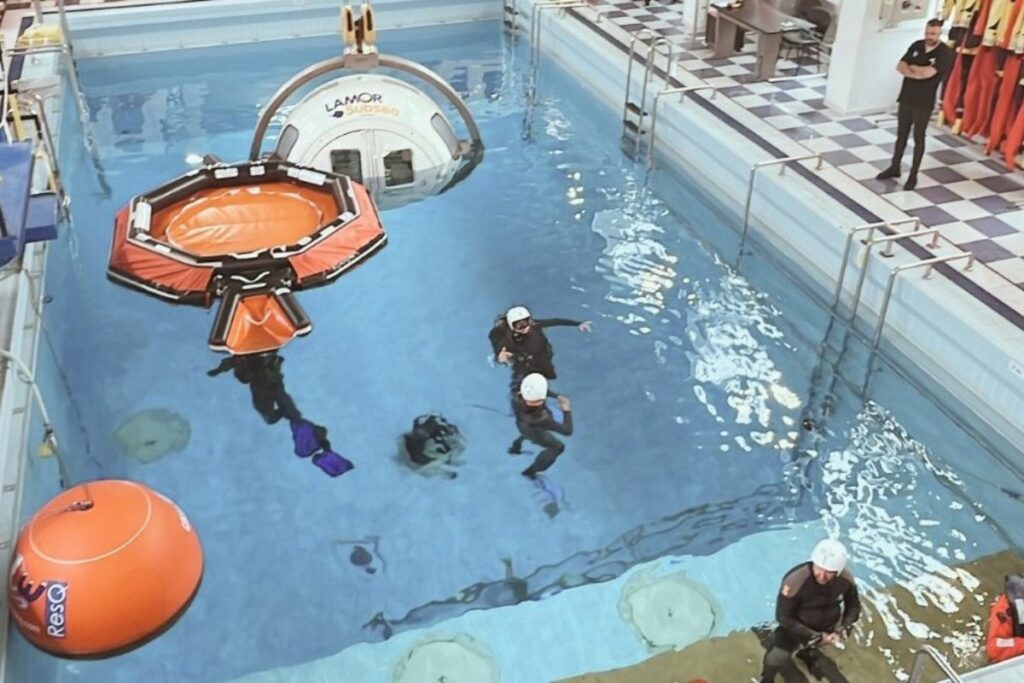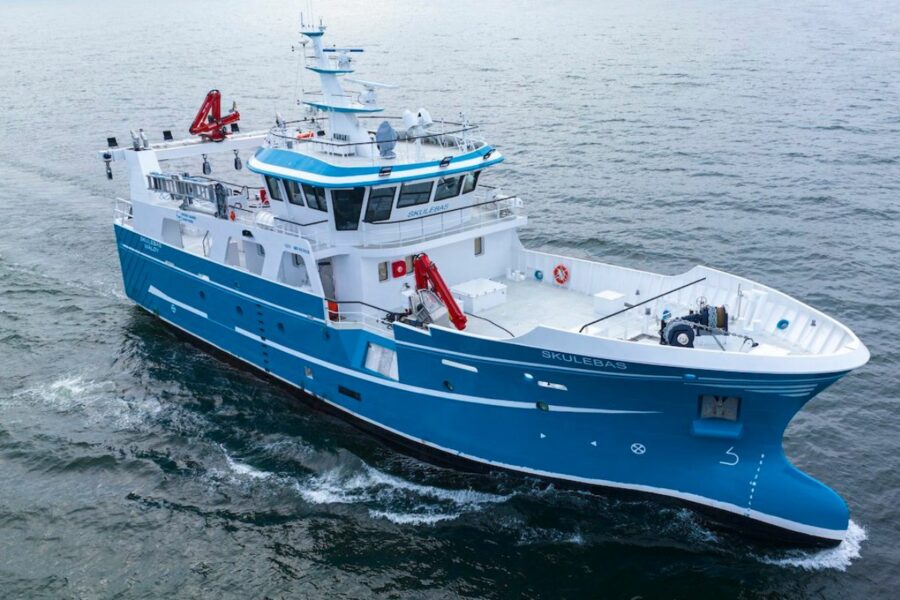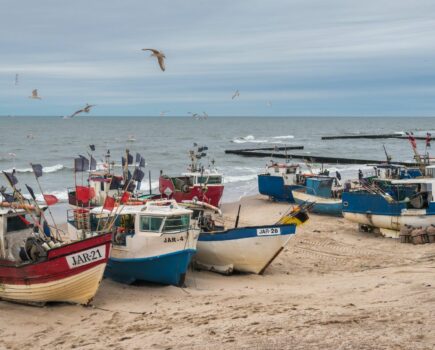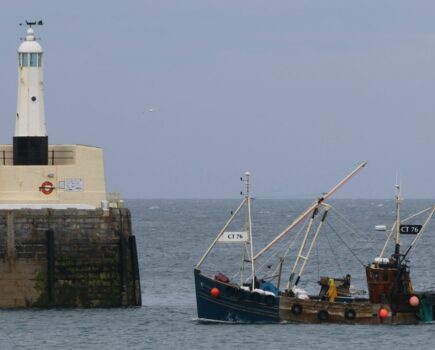With upskilling the future workforce highlighted as a focus of the new £360m Fishing and Coastal Growth Fund, the UK has an opportunity to think big
It’s not news that we face an employment crisis across the industry – and, arguably, no surprise. Everywhere we turn these days seems to bring some new threat or criticism. If it is not spatial squeeze or a lack of fish, it is accusations from armchair warriors about fishermen destroying the environment. Little wonder that many of the generation entering the UK workforce wouldn’t give fishing a second look.
Huge efforts have been made to encourage new entrants, to reach out to schools, to counter the negative messages about ‘greedy’ fishermen, to highlight the many positives about a career at sea. These efforts are to be applauded, but still we face a recruitment crisis. The numbers speak for themselves.
Are we missing a trick? The South Western FPO-led apprenticeship scheme, launched in 2023, cast its net nationwide, drawing in recruits from areas well away from traditional fishing communities, and pointing out that fishing can still be a great career that provides multiple transferable skills and qualifications (FN, 3 July, ‘Apprenticeship pilot unlocks new fishing talent’). Fishing provides freedom, sights and experiences that many workers ashore would envy, and the potential to earn good money and be rewarded for hard work.
I’ve seen at first hand the role that fishing can play in helping those who have been on the wrong side of the law – often for repeated petty infringements – by providing steady, no-questions-asked employment on release. The same goes for ‘troublesome’ pupils in the classroom who are transformed aboard a fishing vessel. Fishing can provide board and lodging away from temptations, and foster a sense of identity and pride. It can provide a career path for people with huge potential who would otherwise struggle to find anything but minimum-wage jobs with few prospects.
The key is linking these people with the industry, and providing ongoing support as they adjust to a way of life that may be utterly different to anything they have experienced before.

The EU’s Turning Blue project concentrates on encouraging young offenders to transition from prison to careers at sea (FN, 26 June, ‘Turning Blue: from prison to sea’). After a series of meetings in prison, suitable candidates are selected for mandatory safety training before starting sessions at sea. (Photo: Turning Blue)
We’ve featured in FN over the last year or so four very different training vessels designed to attract new entrants into the fishing industry, from across Europe and the USA. Perhaps it is time we took this approach, modified to suit conditions here in the UK, and used a training vessel as a platform to kick-start a new drive not just to recruit new blood, but to send a wider message that fishing is a genuine career choice, with a long-term future.
A vessel such as the Norwegian Skulebas, with appropriate mentoring and support as people move into full-time work, may be one way of achieving this (FN, 10 August, 2023, ‘Norway takes delivery of floating fishing school’). Skulebas takes groups of youngsters to sea for up to a week, providing a mix of hands-on working experience and formal classroom training while at sea. It showcases new technology, fisheries science and monitoring, and multiple fishing methods, giving a taste of the variety of career paths that fishing can provide.
This would not be cheap. Skulebas cost over £10m to build – though at 35m LOA, it may be larger than is needed here. Possibly a boat modelled on the 24m designs that are proving so successful in the UK would be more affordable and appropriate.
Either way, it could be time to think big.
The sight of such a vessel, visiting ports around the UK and making waves everywhere it went, would generate a raft of positive headlines, and an antidote to the constant negative publicity that the fishing industry now receives. In a country with a prison overcrowding crisis, and chronic rates of reoffending, stories about fishing rehabilitating lives would make headlines – as would stories about ‘failing’ pupils, perhaps facing exclusion, being inspired by a career path they had never even thought of.
There are 101 unanswered questions that would need to be resolved before we saw a UK training vessel in the water. What size boat, and what configuration? Who would operate it? How would it be funded in the long term? Who would be targeted: school pupils, unemployed youngsters, those due to leave prison or young offender institutions? Or all of the above?
Fishing into the Future (FITF), a charity designed by fishermen, for fishermen, has kindly offered to host a wider discussion about a way forward. I should stress that this is not an FITF project, but am grateful that the charity is willing to facilitate the initial discussions.
The plan is to hold an online meeting to discuss ideas under the FITF umbrella. If the discussion is successful, the next step would be to pull together a draft application for FaSS funding to develop the idea further.
The FaSS application would look to develop a detailed business plan for operation of a UK training boat, confirm a suitable design, and identify suitable sources of funding. The £360m Fishing and Coastal Growth Fund the Government announced when trying to sugar the pill of the 12-year access deal with the EU will be available by the time the application is developed, and is an obvious candidate for much of the funding required.
If you’re at all interested in the concept of a training vessel, or have ideas of your own about how this could happen, please get in touch! I can be contacted on WhatsApp at: +44 77 4141 3966 or by email at: laxeyar@gmail.com
Once the discussion has started, I’ll work with FITF to organise an online meeting where we can take the idea further. FN will report on the next steps as the project develops.
By Andy Read
This story was taken from the latest issue of Fishing News. For more up-to-date and in-depth reports on the UK and Irish commercial fishing sector, subscribe to Fishing News here or buy the latest single issue for just £3.50 here.
Sign up to Fishing News’ FREE e-newsletter here.








